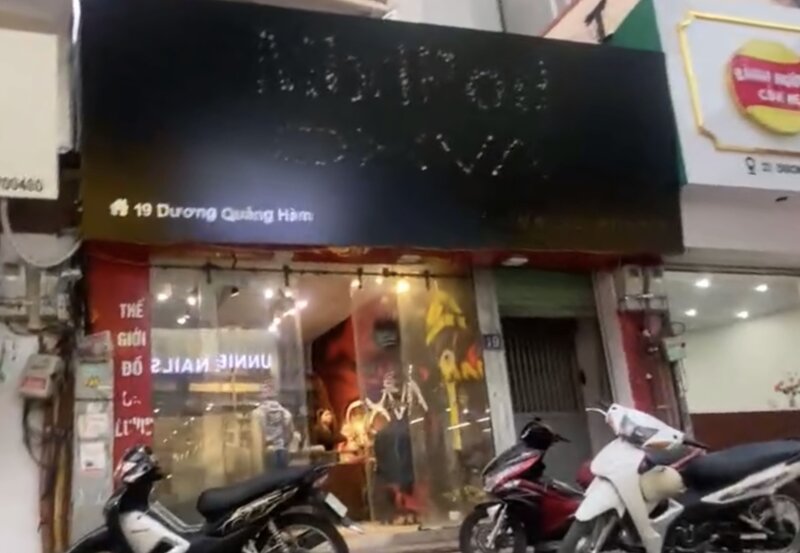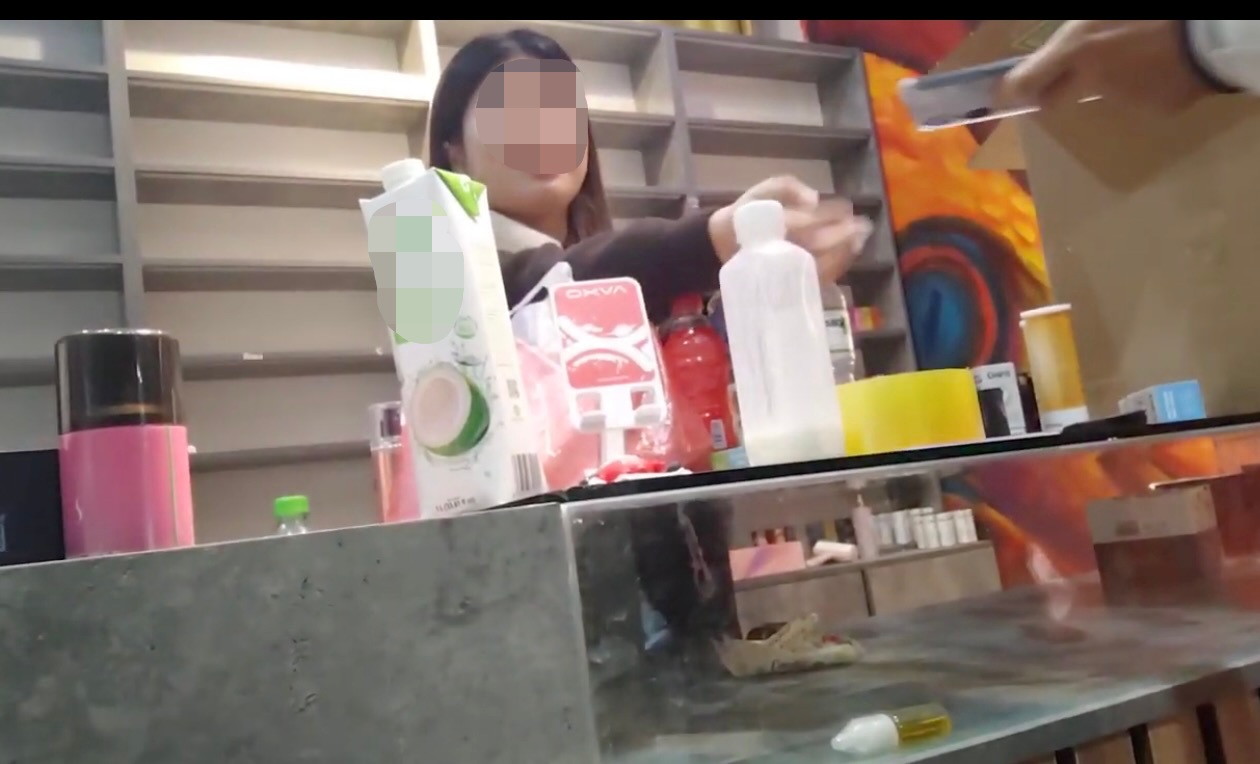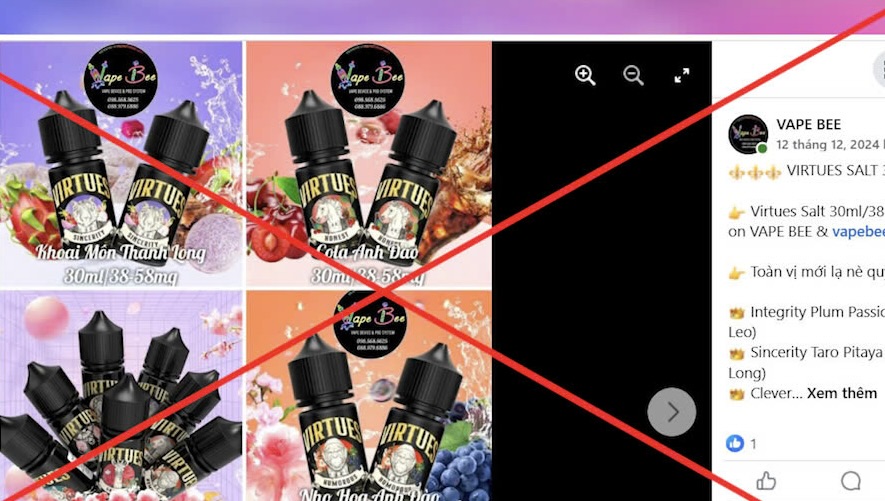Removed billboards but still displayed openly at stores
According to Lao Dong reporters, electronic cigarettes are still being sold openly in some stores in Hanoi.
Although the signboard of the direct sales store in Hanoi has been removed, customers can still easily access and purchase e-cigarettes, essential oils, as well as related accessories.
At the store named “MIXIPOD” located at 19 Duong Quang Ham Street, Cau Giay District (Hanoi) - where reporters recorded the e-cigarette trade still going on vigorously. Although the store had announced its closure and removed its sign, customers kept coming in and out and the store staff still provided e-cigarette products.

In a conversation with reporters at the store, when asked about the products, the staff at this store did not hesitate to introduce essential oils with a price of about 50,000 VND per bottle.
Even when asked about this product being banned, the staff expressed: "This is banned, but we will sell it today, and tomorrow we will only sell it online to avoid attention."

After the ban on new generation cigarettes, many stores removed their billboards and stopped selling openly as before, instead operating more "secretly", mainly selling through social networks.
Social networks become "markets" for electronic cigarettes
The sale of e-cigarettes on social media platforms such as Facebook, on many fanpages and sales groups, is still going strong. Fanpages and sales groups on Facebook are still actively advertising these products, continuing to target teenagers and young users.
For example, on the fanpage named "FOD Hanoi", where electronic cigarettes are advertised with attractive videos and eye-catching images, attracting strong attention from viewers.
Sites like “1997 Vape Coffee” or “Vape Phu Nhuan” do not hesitate to offer attractive offers such as “shocking discounts” and “attractive gifts” to encourage customers to place orders. These tricks are not only aimed at adults but also especially attract minors, a group of people who are easily influenced by online advertising.

Not only advertising, e-cigarette stores also apply many sophisticated tricks to avoid detection. One common way is to change the product name when delivering.
For example, when reporters contacted the fanpage “The Viva Vapor”, the store staff said that when customers order e-cigarettes, the product will be renamed “XL perfume” in the delivery order to avoid the attention of authorities.
To verify the information, the reporter placed an order to buy e-cigarettes. Through a fanpage (with the address at 95 Phan Van Truong, Cau Giay, Hanoi), the reporter contacted the seller and was confirmed that although the state has banned e-cigarettes, the store continues to sell and deliver online.
After a phone conversation, the reporter was informed that the order would be delivered within 20 minutes. In particular, the store also offers free delivery service and a “buy 2 bottles, get 1 free” promotion. The store will place the order via the app and deliver it to the address requested by the customer.
This incident shows that not only the sellers of e-cigarettes but also the transporters can unwittingly assist in illegal acts. This raises questions about the responsibility of delivery units in checking and confirming goods before shipping.
Despite the ban, e-cigarettes are still being sold and bought actively in the market, both openly and secretly. This situation shows that the authorities need to soon issue regulations and guidelines to implement the National Assembly's ban on e-cigarettes and heated cigarettes. At the same time, it is necessary to soon implement measures to tighten and control this type of banned goods.
Violation of the law and serious consequences
Although authorities have strict regulations prohibiting the sale, transportation and use of e-cigarettes, violations still occur openly and in an organized manner.
According to Lawyer Dang Van Cuong, Head of Chinh Phap Law Office (Hanoi Bar Association), the acts of manufacturing, trading, storing and transporting electronic cigarettes are strictly prohibited and can be strictly handled according to the law. Violators can be subject to administrative sanctions or criminal prosecution depending on the level and consequences of the violation.

Penalties include fines ranging from VND100 million to VND1 billion, or imprisonment from 1 to 5 years, depending on the value of the infringing goods. In particular, for individuals or organizations that deliberately re-offend, the sentence can be up to 15 years in prison.
Authorities, including the Ministry of Public Security, the Ministry of Health and the Government, need to coordinate more closely in managing, controlling and handling violations. This is not only to protect public health but also to prevent complicity from related parties, including transport units.











